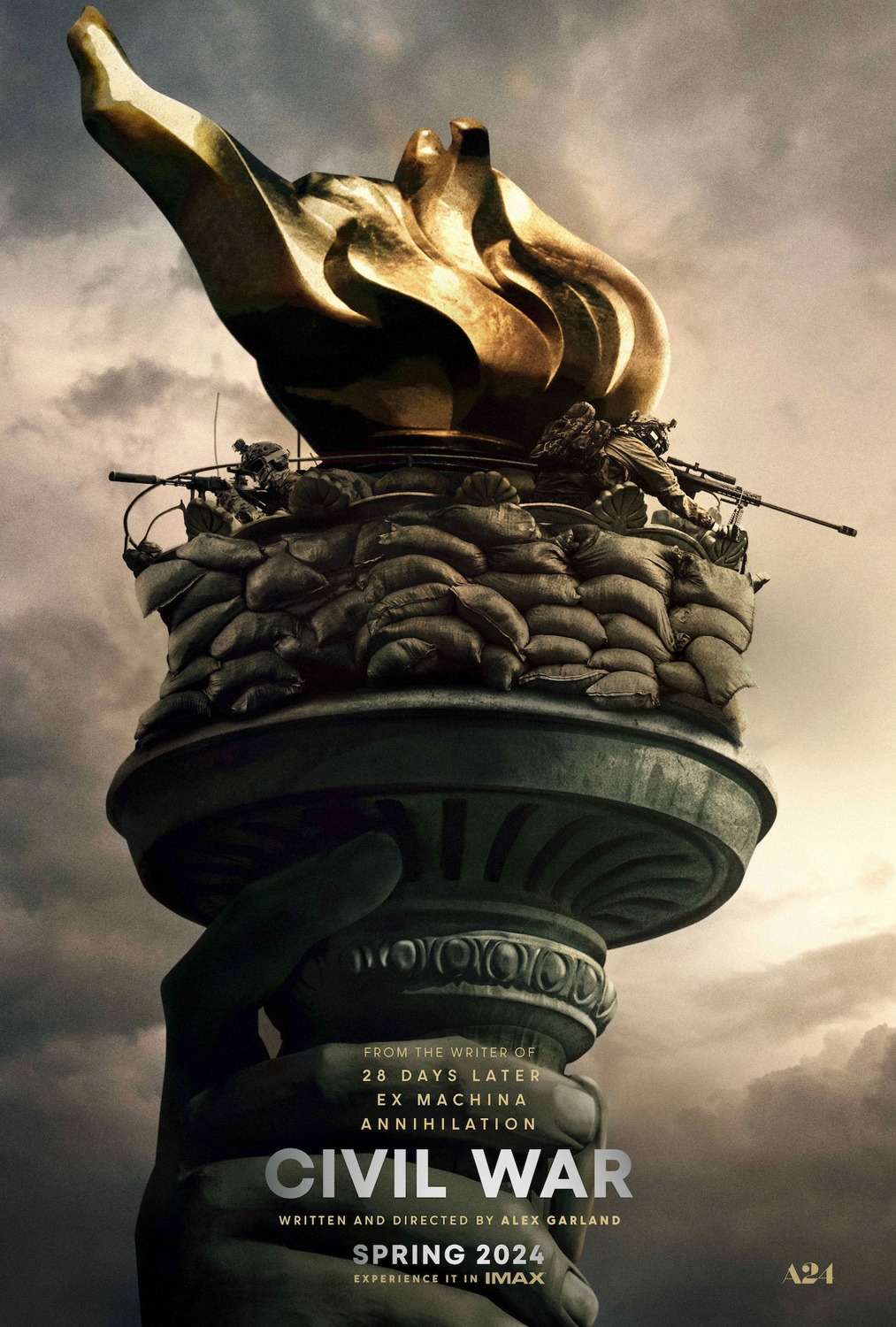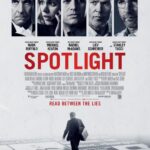Director
Alex Garland
Starring
Kirsten Dunst
Wagner Moura
Cailee Spaney
Stephen McKinley Henderson
In the not-so-distant future, the United States has devolved into a civil war which has split the country into multiple factions. Renowned photojournalist Lee Smith [Dunst] and her colleague Joel [Moura] are intent on doing the arguably unthinkable: travelling from New York to Washington DC to interview the President (played by Nick Offerman). On their trip they are accompanied by seasoned journalist Sammy [Henderson] and upstart rookie Jessie [Spaney]. And on the road they encounter various armed groups, as well as regular civilians simply trying to get by in this unusual environment. Getting closer-and-closer to the capital, the exchanges and interactions become more intense and the validity of the entire undertaking falls into question.
Civil War could be one of the greatest cases for preconceived expectations vs reality. Based on all the marketing and promotional material, it would be fair to assume this is a straight war film. A huge blockbuster release that charts the exact events that led to the US fracturing in some nightmarish dystopian cautionary tale. But that’s not actually what Civil War is or is about. In fact, the movie informs the audience very explicitly about its intentions within the opening scene. Yes, we have a bit of world-building to get the ball rolling but the real focus is on the journalists covering the events. And, more specifically, the desensitised nature of those who observe and document. Meaning, once you understand what you’re about to see isn’t some fetishised action romp, you can settle into what the film is trying to say. Namely, a commentary about the almost voyeuristic role of the press during conflicts and how the lens can put distance between you and the reality happening in front of you. In essence, taking the rambling and adrenaline fuelled exploits of Apocalypse Now with the flavouring of Salvador and The Killing Fields.
In terms of this movie’s construction, i.e. the cinematography and sound design, it’s an incredible achievement. Rather than an over glorification of war, there’s a dark documentarian quality to the surround sound of war-zone gunfire. Instead of rifles spraying infinite rounds of ammunition with blinding muzzle flashes and cool-sounding effects, it presents every single weapon as what it is: a device designed to destroy whatever’s in front of it. As such, this whole film, has a distinctly 70s dystopian Americana vibe. Sure, the road trip war-zone vignettes inadvertently create a pacing some will be put off by. But the truth is, it’s a reflection of life for these individuals: a medley of calm and chaotic that works its way through the pockets of normality and horror that exist in such close proximity. Which, ultimately, makes it all the more familiar and daunting.
It should be noted that this film wouldn’t succeed in the slightest, if the audience didn’t care about the journalists themselves. These four central characters had to be positioned as relatable human beings. And each one of them is a fantastic embodiment of a fairly standard archetype. You have the charming, ambitious Joel, with Wagner disarming you and feeling like a safe anchor for the audience. Sammy’s wisdom and passion are so magnificently and effortlessly conjured by Henderson, who is given the reverence he deserves throughout; offering counsel and advice. And then there’s Jessie who is the epitome of a hungry young photographer, eager to please and achieve but not fully braced for the horrors that await.
And then there’s Kirsten Dunst, who, on the surface, is the jaded war photographer who’s seen everything and doesn’t have time to babysit. And while we’ve seen this trope done countless times before, there’s such a beautiful weight to Dunst’s performance. Whereby she carries the fatigue that’s at odds with her unrelenting compulsion to push onwards. At one point, Sammy states that Lee has lost her faith in the power of journalism. Which is the real conversation the film wants to engage in. Do people care? Can a single photograph or quote shake people from their apathy and change their perspectives? And, given the state of the world at present, it’s a very astute question to post. What’s interesting is that a) Civil War claims it’s not for the journalists to decide – they simply record the event for others to study and analyse, and b) any plot armour is paper thin. Just because you have PRESS written on your van or you’re wearing a helmet, doesn’t mean you’re not in just as much harm’s way as the soldiers. The major difference is, you’re not fighting back. And, as a viewer, it means you genuinely don’t know which of the cast, if any, will make it from one scene to the next.
But, for everything this film is trying to achieve, it’s not going to please everyone. See, there’s a grounded simplicity to the world-building which will frustrate those who want the details. And by taking the reality that many countries deal with on a daily basis and bringing it home for America, in all it’s ugliness, most viewers will want to know who’s the ‘good guy’ and who’s the ‘bad guy’. But Civil War has no interest in that, it’s simply holding a mirror up for a divided nation. Making it feel so close and possible but equally unclear if you, the viewer, are part of the problem. And, with media literacy being the way it is of late, that’s something certain cinemagoers find off-putting. Essentially, they like to know they’re not on the wrong side, but that authority (especially in this movie) is spectacularly uncertain when you’re two years deep into an internal armed conflict.
And while some may say not showing the context of “which side” we’re supposed to be on and the reasons for the escalation to war and cessation makes it difficult to connect with the story, there’s merit to simply presenting the unapologetic brutality of it all. And this isn’t the first time Garland has done something like this. Men had a lot to say but without being explicit, audiences and critics felt it was merely a reductive message along the lines of “men can be bastards.” Which Civil War also opens itself to with “war is pretty bad, right?”
Whatever people thought this film was or could be, it is an undeniably gut wrenchingly tense exploration that doesn’t try to expand or explain; it simply points the lens and asks “how does this make you feel?” Which is all that some of the best, most powerful art aspires to do.
Release Date:
12 April 2024
The Scene To Look Out For:
Of the many intense sections (the Jesse Plemmons scene easily being the most excruciating), there’s an odd oasis amongst the madness. Having been shot at by snipers and seen bodies of looters strung up, the group make a short pit stop in a small, seemingly untouched town, where people are apparently “staying out” of the whole war. It serves to not only highlight how each character operates and deals with conventional normality but also a subtle illustration that even this form of tranquility is an illusion based on control.
Notable Characters:
This is a truly stellar cast. Similar to something like Children Of Men, every role offers a glimpse into how this new world operates. But we should talk about the unnamed US President. Offerman is undoubtedly sublime casting but we only capture the slightest impression of this man, his character and his actions. Like all dictators or despots at the end of their reign, he has amassed legendary status. We know he’s serving his third term and that he ordered airstrikes on US civilians, but without details and context, we simply have to assume he needs removing from office by any means necessary. Subsequently, a role that has to make an impact with less than 2-3 minutes screen-time calls for an actor of significant standing. And Offerman is just the man for the job.
Highlighted Quote:
“Would you photograph that moment? If I got shot?”
In A Few Words:
“While Civil War isn’t what many would have expected or wanted, it’s one that presents a series of images and moments that are truly haunting and sit with you long after the credits roll.”
Total Score: 4/5

![The Red Right Hand Movie Reviews [Matthew Stogdon]](https://reviews.theredrighthand.co.uk/wp-content/uploads/2021/12/cropped-header1.png)



